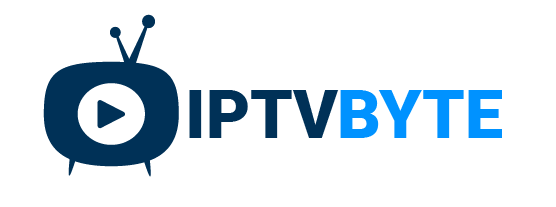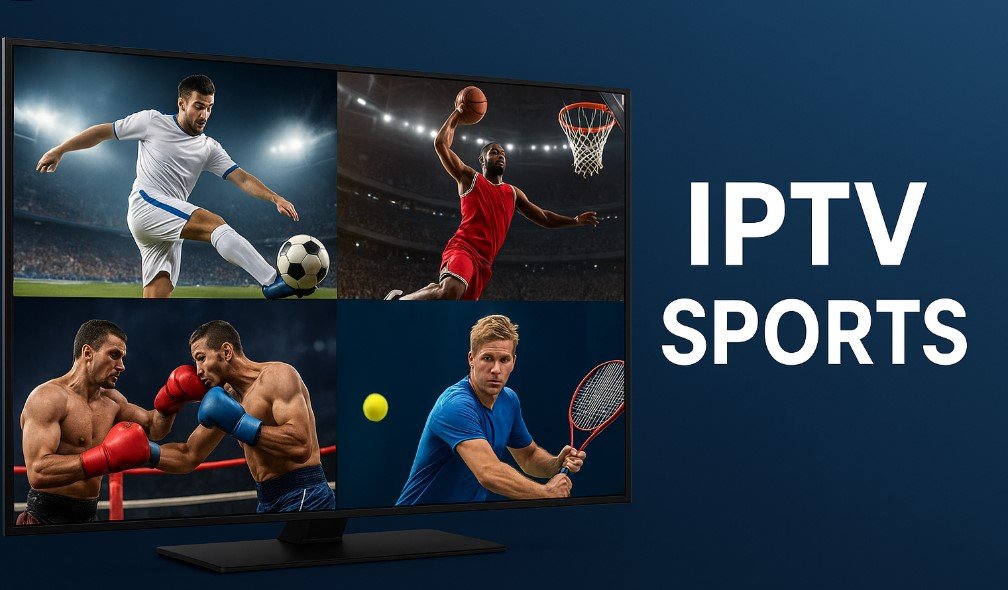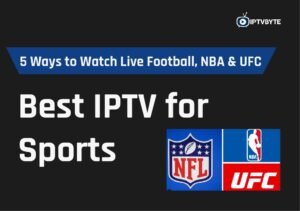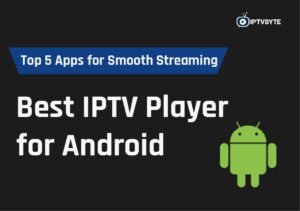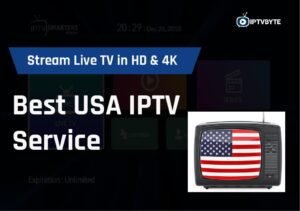Introduction
Hunting for IPTV Sports that won’t freeze in the 90th minute or crash right before the main event? You’re not alone. The 2025 landscape is packed with resellers, trial lists, and mixed-quality apps. This review-style guide explains what to look for in an IPTV Sports provider, how to test streams properly, and what settings will give you smooth, HD (or 4K) playback on Fire TV, Android TV, Smart TVs, iOS, and desktop.
Our goals are simple: bring you the right info, help you avoid buffering, and help you choose a package you’ll actually keep.
Key Takeaways
Quality over quantity: A reliable IPTV Sports provider focuses on stable HD/4K sports channels, catch-up where available, and fast support—not just massive lists.
Peak-time test wins: Always test during peak hours (evenings/weekends) to see true performance; a 24h trial is your best friend.
Device + app combo matters: Fire TV/Stick, Android TV (Shield/Chromecast), and Smart TVs work great with apps like TiviMate or IPTV Smarters.
Network first: Ethernet or 5 GHz Wi-Fi > 2.4 GHz. Aim for 15–25 Mbps per 1080p stream (more for 4K).
Know the rules: Check concurrent connections, VPN policy, refund terms, and regional availability before you pay.
What Is IPTV Sports (and Why It’s Different)?
IPTV Sports is TV delivered over the internet with an emphasis on live sports: football, basketball, tennis, F1, MMA/boxing, cricket, and more. Good providers deliver:
Live channels with sports networks and event feeds
EPG (program guide) for easy navigation
Catch-up / time-shift (where available) for replays
VOD highlights or event replays
Multi-device support (mobile, TV, and desktop)
Where many services fail is consistency. A large channel list is meaningless if streams buffer during big matches. Your decision should be based on stability, bitrate quality, and support responsiveness.
How to Choose an IPTV Sports Provider (2025 Checklist)
1) Reliability & Uptime
Ask for recent uptime stats and maintenance windows.
Real test: try a 24-hour trial and watch at peak time (e.g., weekend evening).
Zapping should be fast (under ~2 seconds) with minimal failed loads.
2) Picture Quality & Bitrate
Look for consistent 1080p as baseline, with 4K options for premium events if your device and bandwidth support it.
Modern codecs: H.264 for compatibility, H.265 (HEVC) for efficiency at the same quality.
Check motion handling in fast plays; artifacts = low bitrate or poor transcoding.
3) Sports Coverage & Add-ons
Confirm the leagues/events you care about (football leagues, UFC, F1, NBA, cricket, etc.).
Catch-up is gold if you miss live kickoffs.
Event PPV mirrors (where permitted) reduce risk of single-feed failure.
4) Device Compatibility & Apps
Fire TV/Stick and Android TV with TiviMate (great EPG, channel groups) or IPTV Smarters (easy setup).
Samsung/LG Smart TVs via SmartOne/Smart STB portals.
iOS / iPadOS apps for mobile viewers; desktop web players as a fallback.
Bonus: Support for multiple profiles and pin-protected groups (for family use).
5) Support, Status, and Transparency
Look for status channels (email/Telegram/Discord) that announce updates and outages.
Response time under 24 hours for tickets is a healthy sign.
Clear refund/renewal policies signal a serious operation.
6) Pricing & Plans
Avoid prices that are too cheap to be true; stable sports coverage costs servers and CDN capacity.
Start with monthly, then upgrade to multi-month or annual once you confirm consistency.
Sports Channels: What You Can Expect
When you evaluate IPTV Sports packages, focus on coverage, quality, and peak-time stability—not just the number of channels. A strong lineup typically includes:
Football (Soccer): Major European and international leagues, pre-match shows, highlights, and select 4K fixtures where available.
US Sports: Basketball, American football, baseball, hockey—regular season + playoffs with reliable HD feeds.
Fight Sports: MMA, boxing, and combat sports channels with event-night redundancy to avoid single-feed dropouts.
Motorsport: F1, MotoGP, endurance racing; look for fast frame rates and crisp motion handling.
Cricket & Rugby: Dedicated channels for international tours, leagues, and analysis shows.
Tennis & Golf: Grand Slams, PGA/European Tour coverage, with catch-up or replay options where supported.
Regional Sports Networks: Local pre/post-game coverage and magazine shows (availability varies by region and provider).
24/7 Sports News & Highlights: Continuous updates, recap shows, and condensed replays for busy schedules.
Quality checklist: Aim for a 1080p baseline, low-zap times (~2s), accurate EPG, and—if offered—catch-up for matches you miss. Always test these during weekend evenings to see real performance.
Why Buy from IPTVBYTE
If you want a sports-first setup without headaches, IPTVBYTE focuses on the essentials: stable HD/4K sports feeds, a clean EPG, fast support, and transparent plans. You can request a 24-hour trial to stress-test the channels you care about (football, UFC, F1, cricket, etc.) on your actual device. If it passes your peak-time test, upgrade to a monthly plan and scale from there.
Need help with app setup (TiviMate / IPTV Smarters), favorites, or parental locks? Our team shares step-by-step guides and tweaks to keep your streams smooth and organized.
IPTV Sports: Buyer’s Guide in 60 Seconds
Ask for a 24h trial and test a real game live.
Check 3–5 channels you’ll actually watch (don’t be blinded by huge lists).
Validate 1080p baseline and fast zapping.
Confirm concurrent streams and VPN rules.
Start monthly, then scale your plan.
Frequently Asked Questions (FAQ)
1) Is IPTV Sports legal?
Legality depends on your country and whether the content is properly licensed. Always follow local laws and choose services with clear, legitimate policies.
2) What internet speed do I need for IPTV Sports?
Plan for 15–25 Mbps per 1080p stream and more for 4K. If multiple devices stream at once, add headroom.
3) Which devices are best for IPTV Sports?
Fire TV/Stick and Android TV devices are popular for performance and app support. Samsung/LG Smart TVs work well with portal apps. Keep apps updated.
4) Why does my stream buffer during big matches?
Peak-time congestion, weak Wi-Fi, ISP throttling, or overloaded servers. Use Ethernet/5 GHz, pick nearby servers, and test providers that handle load gracefully.
5) Can I record matches or use catch-up?
Some apps/providers support catch-up or cloud DVR (varies by service and region). Confirm this during your trial.
6) Do providers allow multiple devices at once?
Depends on the plan. Some allow multi-connection, others are single connection only. Exceeding limits can trigger blocks—read the plan details.
7) Should I use a VPN?
Only if legal and allowed by your provider. It can help with throttling and privacy. Pick a low-latency, nearby server.
8) Can I watch on mobile when traveling?
Usually yes, but some providers geo-limit or restrict concurrent logins. Test from your mobile data and a different network during the trial.
Final Thoughts
The best IPTV Sports experience in 2025 is a mix of stable infrastructure, high-bitrate 1080p (or 4K), and fast, friendly support. Don’t judge by channel count alone—judge by consistency during real games. If a provider can deliver smooth peak-time streams, accurate EPG, and clear policies, that’s the one to keep.
Conclusion
Want to see how it performs on your setup? Ask for a 24-hour trial and test during a live match on the device you’ll use most. If the stream stays smooth and the channels you need are stable, start with a monthly plan and upgrade later.
Pro tip: Wire your main device via Ethernet, organize your favorite sports channels, and keep your app updated. Smooth sports nights start with the right setup—and the right IPTV Sports provider.
